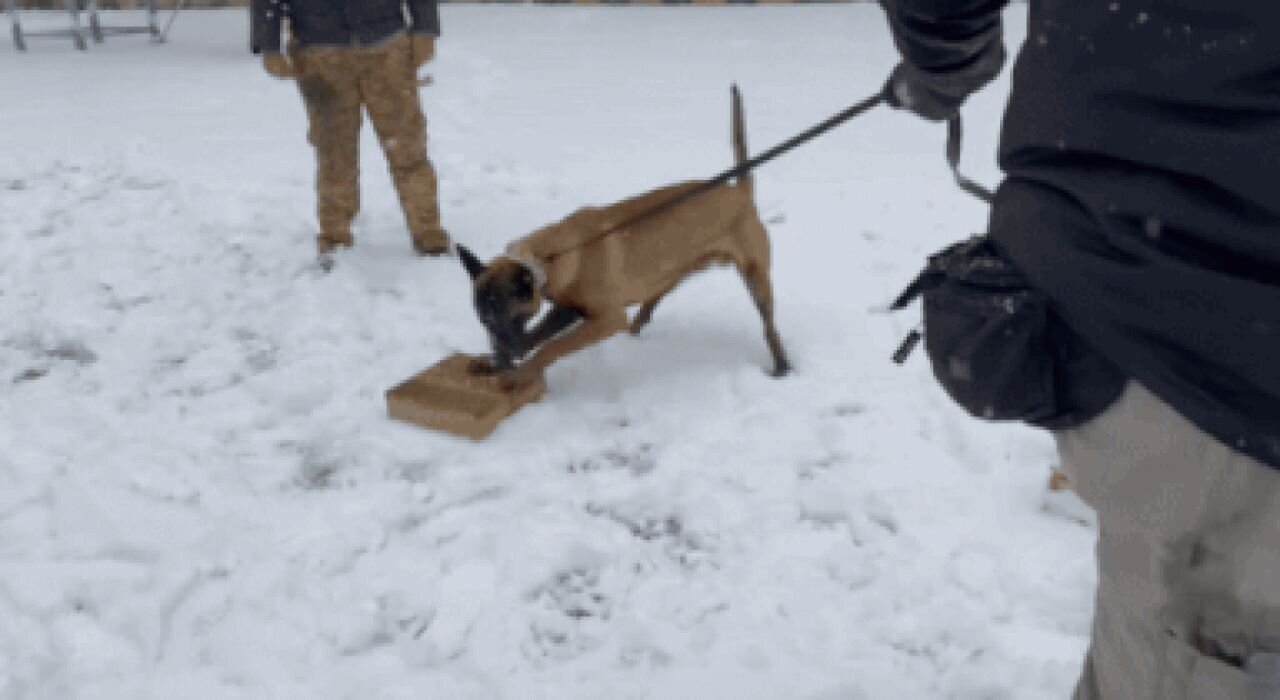UNODC provides Iranian anti-narcotics police with drug-detecting dogs

TEHRAN – The Iranian anti-narcotics police (ANP) canteen center has received a total of ten trained detecting drugs from the United Nations Office on Drugs and Crime (UNODC).
The UNODC procured these trained dogs on February 29, the UN website announced in a press release on March 17.
According to the UNODC website, this procurement is part of sub-program 1 of the UNODC Country Partnership Program (CPP) in Iran, with the goal of enhancing the operational capabilities of the anti-narcotics police.
Each drug-detecting dog is assigned to a handler, who has been trained by two professional and senior international instructors.
The instructors led a two-week training program to enhance the handlers’ skills in combating illicit drug trafficking across the country.
During the training, the instructors improved the handlers’ knowledge in the areas of selection, physiology and psychology, nutrition, healthcare, and training of canine dogs.
The practical sessions provided the opportunity for the handlers to observe, compare, and update their knowledge. The search techniques and behavioral correction in dogs were observed and assessed by the instructors of this training.
Iran remains one of the major transit routes for drug trafficking from Afghanistan to European countries. The UNODC has built a strong partnership with the Government of the Islamic Republic of Iran in several areas including the capacity building for the Iranian law enforcement and has been providing technical assistance to the Iranian Government in their fight against illicit trafficking of drugs and precursors.
The Iranian ANP canine trainers, trained by international seiner instructors, will use their knowledge during their daily work at border crossings around the country to conduct search on vehicles, containers, and cargo passing through the legal entry points. The importance of these dogs is that using them is considered a convenient method for the identification of hidden concealments of illicit drugs, the UN website added.
This procurement was conducted as part of the activities foreseen in the framework of the sub-program 1 “Border Management and Illicit Trafficking” of the UNODC Country Partnership Program for the Islamic Republic of Iran through the generous donation of the Government of Japan.
Study visit in Tashkent
Anti-narcotics police and law enforcement experts and officers from the Drug Control Headquarters participated in a three-day study visit organized by the United Nations Office on Drugs and Crime (UNODC) office in Iran from December 4-6, 2023, in Tashkent – Uzbekistan.
The UNODC in Iran has been actively present in the Islamic Republic of Iran since 1999 and considers Iran as one of the strategic partners for drug control and crime prevention in the region. It has been supporting the Islamic Republic of Iran by providing technical assistance and training for years ever since its establishment, the UN website announced in a press release on January 3.
The comprehensive curriculum of this study visit encompassed various activities and topics, inter alia session on “Construction and structure of an optimal canine center, management of an optimal canine center; staffing of an optimal canine center; breeding, health, treatment, food, etc. for drug-detecting dogs”, the report added.
The theoretical courses including different lectures and seminars, were complemented by practical training.
The attendees learned about the specific ways of training and dealing with working dogs. They also acquired needed practical knowledge for managing kennels.
According to the report, the members of the Iranian delegation visited the veterinary ward and had the opportunity to directly ask their questions from the specialized medical staff. The head of the medical center provided the delegation with pertinent information and answered questions regarding structure, staffing, equipment, and other technical aspects of the management of the veterinary ward.
At the end of the training and pursuant to the official ceremony at the Regional Customs Canine Centre of Uzbekistan, memorial trees were planted to symbolize enduring fellowship among partners in Iran and Uzbekistan and continuous cooperation in the future.
Highlighting the importance of international cooperation in the fight against narcotics, Alexander Fedulov, the UNODC representative in Tehran, hoped that future activities of a similar nature would continue upon the provision of support by donors.
MT/MG
